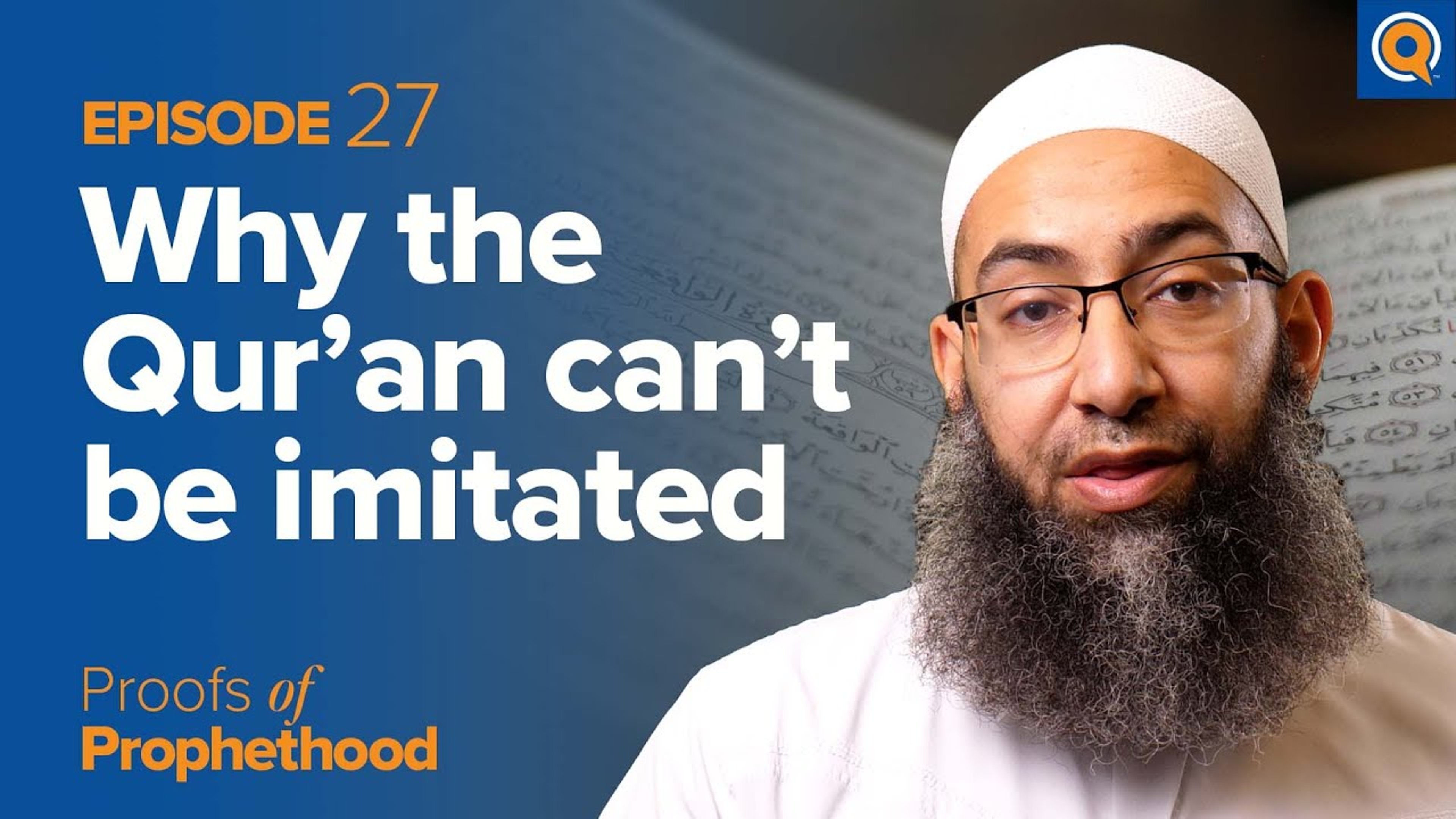Jump to:
Proofs of Prophethood
A Linguistic Wonder: The Inimitable Qur'an
The Qur'an is a linguistic miracle. In its preservation as the unchanged word of God, along with its unique literal style that man has never been able to replicate, this miracle that transcends time and space is proof of God's existence. Sh. Mohammad Elshinawy describe the miraculous nature of the Qur'an.
The Proofs for the Prophethood of Muhammad ﷺ eBook is available now. Download your copy here.
